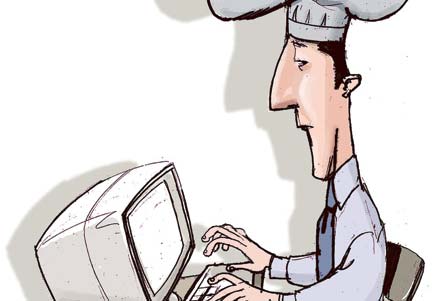A recent survey carried out by Caterer Middle East has revealed that executive chefs in the region spend on average 63% of a typical working day dealing with the business aspects of their restaurants and only 37% of their time in the kitchen.
The majority of respondents also said they would prefer to spend a greater proportion of their time being hands-on within their operations.
"Gone are the days when what the executive chef did was mostly cooking," said Al Diar Siji Hotel Fujairah's chef Munir Ahmed.
"Now an executive chef should be familiar with every aspect of kitchen management and the position requires some business management skills."
Today's executive chef must be more computer literate, have a good working knowledge of budget spreadsheets and, because hotels in the Middle East are placing increased emphasis on restaurants as "experience differentiators", they are also responsible for a significant portion of the property's overall profit margin said executive chef at the InterContinental Hotels Group Festival City, Geoff Haviland.

| Advertisement |
"He must therefore be more business savvy, and really understand the importance of utilising outlet menus and dining areas to their full potential.
"I would say about 95% of my time is spent looking after business and staff-related aspects, and 5% is spent at the stoves, mostly only when I am conducting trials for new menus," he added.
"Managing and developing staff is now a bigger part of the daily routine," agreed Grand Hyatt's executive chef Josef Miklavc.
"While ensuring food standards and hygiene are also important, administration work has increased.
"I spend most of my time looking after the business, but I love to create new dishes and set-ups when time permits," he added.
"We would all like the balance between office and kitchen to be different - I became a chef because I love food, cooking and all aspects of working in a kitchen and to be stuck in an office most of the day is not an ideal scenario," said Haviland.
"But, as executive chef, your primary role is to provide your team with all the necessary training and tools so that they can deliver the end product you and your guests desire. This cannot be achieved when you are standing in front of a stove most of the day."
For those who would like to spend less time in the office and more time in the kitchen, modern technology can provide a solution, as Raffles Dubai's executive chef Andrew Martin Whiffen pointed out.
"A month ago, [I got] a Blackberry. It's great - now I'm not tied to the office as much."









 Search our database of more than 2,700 industry companies
Search our database of more than 2,700 industry companies









